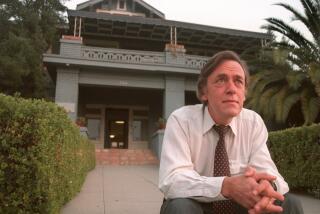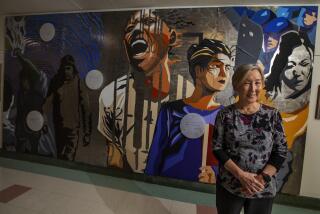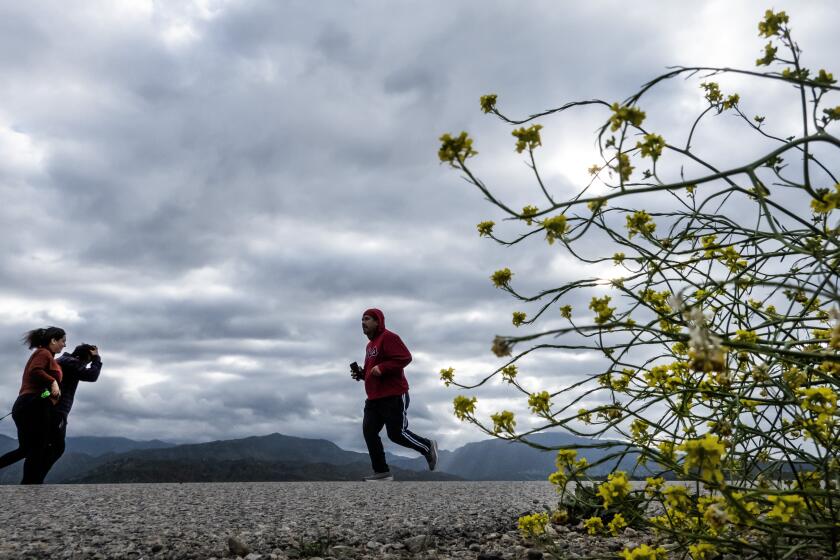Ruling gives posthumous law license to victim of anti-Chinese 1890s
A descendant of the wife of Hong Yen Chang was researching a book about an ancestor when she learned that her great-grand-uncle Chang had received a law degree but never practiced in California.
She contacted another relative, who spoke to a historian at the State Bar of California. The California Supreme Court had denied Chang a law license because he was Chinese.
“The family was troubled that it happened, but we didn’t ever imagine there was anything we could do about it,” said Rachelle Chong, a prominent lawyer and Chang’s great-grand-niece.
Twenty five years later, she received a note from a UC Davis law professor. His students were going to try to overturn the decision that denied Chang admission to the California bar.
That reversal finally came Monday, when the California Supreme Court closed a chapter in the state’s history of anti-Chinese laws and decided unanimously to give Chang a posthumous law license.
In a nine-page ruling, the state’s highest court repudiated its 1890 decision denying Chang a license because “persons of the Mongolian race” were not entitled to citizenship.
“More than a century later, the legal and policy underpinnings of our 1890 decision have been discredited,” the court said in Monday’s unsigned decision.
“Even if we cannot undo history,” the ruling said, “we can acknowledge it and, in so doing, accord a full measure of recognition to Chang’s pathbreaking efforts to become the first lawyer of Chinese descent in the United States.”
The project to award Chang a license posthumously began in 2011 with UC Davis law professor Gabriel Chin, who specializes in the law and race, immigration and criminal law.
The 1890 California precedent has long been “notorious among Asian American legal scholars,” Chin said. “It is a particularly bitter and shocking decision.”
Chin asked his students try to find a way to address that ignominious ruling. They researched the legal issues and the history and filed a petition with the state bar, which oversees lawyer licensing. The bar was sympathetic but did not have the authority to admit Chang posthumously.
The students bided their time.
When the California Supreme Court decided last year to give a law license to a Mexican immigrant who had no green card, the students’ confidence grew. They also were encouraged by the makeup of the top court. Three of the justices, including the chief justice, are Asian American. One is Latino, another is African American and two are white women.
“I believed we had a really strong case,” said Steven Vong, co-president of UC Davis Asian Pacific American Law Students Assn., which brought the case.
The law firm of Munger, Tolles & Olson offered to represent the students for free. Jeffrey Bleich and two other San Francisco-based lawyers with the firm filed a motion with the court late last year.
As a former president of the state bar, Bleich said he was particularly offended by the treatment of Chang.
“I thought it was important to start addressing a stain on California’s judicial history and make amends to the Chinese people,” he said.
The 1890 California ruling had denied Chang a law license under the federal Chinese Exclusion Act, which Congress passed at California’s urging and which the U.S. Supreme Court upheld. It barred citizenship for the “Mongolian race” and imposed a 10-year ban on Chinese immigration.
Because citizenship or eligibility for citizenship was required for a California law license, Chang had to be excluded, the court said in its infamous ruling.
“Courts are expressly forbidden to issue certificates of naturalization to any native of China,” the court ruled.
In 1898, the U.S. Supreme Court ruled in another case that most everyone born in the U.S. was automatically a citizen. In 1918, 28 years after Chang’s rejection, the California bar admitted Chan Chung Wing as the first Asian American admitted to practice in California, according to a state bar spokeswoman. Wing was born in Napa.
Chang had emigrated from China in 1872 as part of an educational program to teach Chinese youth about the West. He attended prestigious schools in the East and eventually graduated from Columbia University law school.
He first applied for a law license in New York, but that bar rejected him because he was not a citizen. A New York judge later granted him naturalization, and the New York Legislature passed a law permitting him to reapply. The New York bar admitted Chang in 1888, making him the first Chinese lawyer in the nation.
Chang then moved to California, where anti-Chinese sentiment was strong. Many Chinese had immigrated to California during the Gold Rush and eventually began to compete with natives for jobs, spurring anti-Chinese laws.
The California Supreme Court found Chang qualified to practice law but said the New York court erred when it naturalized him. That was impossible under the Chinese Exclusion Act, the court said.
After the bar rejected him, Chang became a successful banker and diplomat and eventually retired in Berkeley. He and his wife had two children, but both died without offspring.
In Monday’s decision, the state high court noted that the anti-Chinese laws have since been repealed at both the state and federal levels. A 1972 California Supreme Court decision also struck down the bar’s citizenship requirement.
“It is past time to acknowledge that the discriminatory exclusion of Chang from the State Bar of California was a grievous wrong,” the court said Monday.
Chang’s exclusion amounted to “a blow to countless others who, like Chang, aspired to become a lawyer only to have their dream deferred on account of their race, alienage, or nationality,” the decision said.
Chong said her family was rejoicing.
“Today is a historic moment for our family because we believe this historic wrong has finally been righted,” she said.
Although the ruling will not erase the 1890 case from the law books, “it adds another chapter to the story,” UC Davis’ Chin said.
When law students and other come across it, he said, they will know “that it wasn’t the last word in the case.”
Twitter: @mauradolan
More to Read
Start your day right
Sign up for Essential California for news, features and recommendations from the L.A. Times and beyond in your inbox six days a week.
You may occasionally receive promotional content from the Los Angeles Times.







